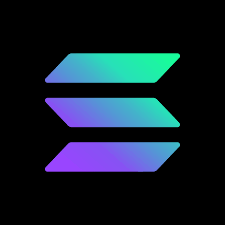One of the main problems that have plagued many cryptocurrency and blockchain companies is choice. With hundreds of blockchains available and dozens of companies investing in them, it can be hard to decide which one works for your needs.
This article will explore the three most extensive blockchain networks in terms of NFTs: Ethereum, Solana, and Polygon. This article aims to provide insight into what each blockchain has to offer and which one might be best for your project.
FACTORS TO CONSIDER BEFORE CHOOSING A BLOCKCHAIN
So, before we start, there are a few things to consider when making this decision. First, what are your priorities?
 If security is most important to you, you’ll want to choose a blockchain with a strong security track record. If you’re more concerned about speed and efficiency, then you’ll want to choose a blockchain that can handle a large number of transactions quickly. Second, what are the costs associated with each blockchain? Some blockchains are free to use, while others require you to pay for each transaction. Make sure you understand the costs before making your decision.
If security is most important to you, you’ll want to choose a blockchain with a strong security track record. If you’re more concerned about speed and efficiency, then you’ll want to choose a blockchain that can handle a large number of transactions quickly. Second, what are the costs associated with each blockchain? Some blockchains are free to use, while others require you to pay for each transaction. Make sure you understand the costs before making your decision.
Finally, consider the community around each blockchain. Some blockchains have large and active communities, while others are smaller and more niche. Consider your own needs and preferences when choosing a blockchain community. Now that you have a basic idea of things to consider while choosing a blockchain, let’s discuss each blockchain in detail and try to know its Pros and cons to make an informed decision.
WHAT IS ETHEREUM?
Ethereum is the clear leader in the blockchain space and is the natural home for NFTs. The Ethereum blockchain is the most secure and scalable, making it the perfect platform for running NFT projects. In addition, the Ethereum blockchain provides NFTs with unparalleled exposure to a large and growing market. It is a decentralized blockchain platform that establishes a peer-to-peer network that securely executes “smart contracts.” Smart contracts allow participants to transact with each other without a trusted central authority. For instance, even the first NFT project was built on Ethereum. It allowed users to collect digital cat collectibles backed using NFTs.
Ethereum is the most popular choice for NFT projects for a good reason. It’s a tried-and-true platform with a large community of developers and users. However, Ethereum can be slow and expensive. So now, let’s discuss the pros and cons of using the Ethereum blockchain.
PRO’S
- Ethereum continuously focuses on features and improvements and keeps improving.
- The blockchain rarely goes through any issue or downtime. As a result, it is unarguably one of the most stable and efficient blockchain platforms yet available.
- It comes with a Stateful architecture which makes it best for app development.
CON’S
- It needs a lot of processing power; therefore, there is less scope of involvement of miners
- Due to the high requirement of resources, the performance takes the toll
- Less transaction processing speed
- High Transactional Cost and gas fees.
WHAT IS SOLANA?

Solana is what people commonly refer to as the “Ethereum killer.” Solana is a highly active open source project that implements a new, permissionless, and high-speed layer-1 blockchain. It is a newer blockchain designed for speed and scalability. It’s a great choice if you’re looking to launch a large-scale NFT project. However, Solana can be challenging to learn and use.
Solana implements an innovative hybrid model that combines a unique proof-of-history algorithm with a version of proof-of-stake (PoS) that allows it to process over 710,000 transactions per second (TPS) without any scaling solutions needed.
PRO’S
- Follows a stateless architecture
- Has Increased transaction speed by up to 50,000 transactions a second
- Has a high-performance protocol for scalability
- Has lower fees compared to Ethereum
CON’S
- The hardware support for Solana is costlier in comparison
- Is not decentralized enough hence downtimes are common
- Has Fewer Projects
- Has low network stability
WHAT IS POLYGON?

The Polygon platform operates using the Ethereum blockchain and connects to Ethereum-based projects. Using the Polygon platform can increase a blockchain project’s flexibility, scalability, and sovereignty while still affording the security, interoperability, and structural benefits of the Ethereum blockchain. It uses a modified proof-of-stake consensus mechanism to perform faster transactions. It also has the lowest fees in the whole crypto ecosystem. Polygon aspires to be a better blockchain development network than Ethereum. Polygon extends Ethereum’s capabilities in terms of security, blockchain sovereignty, user and developer experience, and modularity. Polygon can:
- Deploy existing blockchain networks and develop custom blockchains
- Enable communication across blockchains
- Help existing blockchain networks to become more compatible with Ethereum
If you’re looking to create an NFT on a budget, then Polygon is a great option. Gas fees on Polygon are significantly lower than on Ethereum, making it a more affordable option. However, it’s important to note that Polygon is still developing, so some instability may occur.
PRO’S
- It can process transactions quickly
- Transaction fees are consistently low
CON’S
- Polygon is not an autonomous blockchain. Only a Layer 2 solution works on top of the Ethereum platform and boosts it. Polygon would likely lose its value if Ethereum faces disruptions or ceases to exist
- The MATIC token has only a few limited use-cases, it is designed to govern and secure the Polygon platform but can’t be used for everyday purchases.
COMPARISON
We have already discussed all the essential details of blockchain networks. Now, let’s compare them by categories to make a decision. The categories include:
- ARCHITECTURE: The blockchain architecture consists of the elements like a node – a user or computer that has a complete copy of the blockchain ledger, a block – a data structure used for keeping a set of transactions, and a transaction – the smallest building block of a blockchain system. Ethereum has one of the best stateful architectures among the competition, which is widely used for making Dapp (decentralized applications). The platform records all the transactions in the existing state, and copies of the latest transactions are immediately coined to mirror the recent transactions. However, it is prolonged compared to the other networks on the list.
- SCALABILITY: It is arguably one of the most important factors to consider when selecting a platform; it indicates whether the network is scalable enough to ensure the transaction’s completion. Compared to competitors, Ethereum has a speed of 15 transactions per second. On the other hand, layer 2 scaling with multichain network support solves the scalability problem. Solana can process 50,000 transactions per second, so it has no scalability issues. Users now have access to faster transaction speeds, a more effective consensus model, and more efficient architecture. Polygon provides similar scalability to Solana but with faster transaction speeds.
- TRANSACTION SPEED: Transaction speed is one of the most important parameters when choosing a blockchain over the other. Ethereum has painfully low transaction speed compared to its competitors. Solana and Polygon offer 50,000-65,000 transactions per second, much faster than the 13-15 of Ethereum.
- NUMBER OF PROJECTS: All the platforms mentioned above are pretty mainstream in the crypto ecosystem; hence, there should be no issue picking one over the others. However, one must note that Ethereum is the most popular platform for NFTs.
- CONSENSUS: Different blockchains use different consensus mechanisms to work. Ethereum uses POW or Proof-of-work consensus. Although POW provides the best security systems, it is not ideal Since the processing power requirement is high. To overcome this problem, Solana and Polygon use proof of history and proof of stake consensus, respectively.
- DECENTRALIZATION: This is also an important parameter to consider while choosing a blockchain. Lack of decentralization can cause server downtimes or low network stability. For example, this is why the Solana network stops working sometimes.
CONCLUSION
Now that we have completed discussing all the parameters, let’s make a table to help you make a decision:
| BLOCKCHAIN PLATFORM | CONSENSUS | STABILITY AND SECURITY | POPULARITY | TRANSACTION SPEED | SCALABILITY | FEES |
| ETHEREUM | POW | VERY HIGH | HIGH | 10-15/S | LOW | HIGH |
| SOLANA | POH | LOW STABILITY | MEDIUM | 55000/S | HIGH | MEDIUM |
| POLYGON | POS | HIGH | ACCEPTABLE | 65000/S | HIGH | LOWEST |
The use of all three platforms would be determined by the type of applications that would be developed. These blockchain platforms are quickly gaining market traction due to the variety of applications and usability they provide. You must prioritize your needs and go with what suits you and your NFT the best. Did you notice one thing? I think Polygon checks out all the boxes and has the lowest fees possible; it is the ideal platform for NFTs. However, it would be best to keep the drawbacks or cons in mind while deciding.
[thrive_leads id="228374"]




